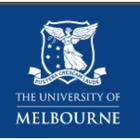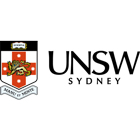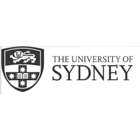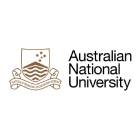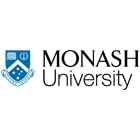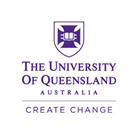IDP项目办公室留学专家推荐:
The Curriculum Vitae or Resume is a two-minute commercial about you.
It will not get you a job … it may get you an interview
WHAT IS A RESUME?
· A summary of your work related information
WHAT IS A RESUME FOR?
The employer wants to receive a concise, honest & relevant summary of you. From reading the
resume the employer wants to know:
· What are the skills and personal qualities of this applicant?
· Can this applicant do the job?
· Will this applicant fit in?
You want to produce a document that makes you look as good as possible. At the end of reading the
resume you want the employer to:
· Give you an interview (and after that )
· Give you a job
STYLES OF RESUMES
The Chronological Resume (see example):
· Is the most common and conservative form of presentation
· Is often preferred by small to medium sized organisations
· Arranges your experience and education in reverse chronological order
· Is good for demonstrating your growth and continuity in a single profession
· Is most suited to people who have not had long periods of unemployment
The Functional Resume (see example) :
· Organises the job-related aspects of your background by the relevant functions you performed
· Headings relate more to your skills and competencies than employers or job titles
· Indicates that you are capable of making a significant change in your career
· Is well suited to students who have gained valuable experience through a number of unrelated
jobs and courses
· Uses a common resume style, with which most employers are familiar and feel somewhat
comfortable
· Is often preferred by large organisations
· Eliminates repetition of job duties
· Camouflages undesirable characteristics such as; lack of career progress or continuity, job
hopping, lengthy/frequent unemployment, lack of required experience/education, age
The Academic Resume:
· Emphasises academic qualifications, articles published, books written (if any), conference
papers delivered, professional development
· Suited to academic staff or post graduate students seeking an academic position
The Imaginative Resume:
This style is most effective for people who are seeking employment in a field, which demands
creativity and individuality, such as graphic design, creative writing or marketing. Some
employers however prefer a more conservative resume style. You should research your companies
thoroughly to see if they are open to creative styles. This type of resume acts as a
mini-portfolio and can be impressive if well-designed.
The Combination Resume:
As there is no absolute right or wrong in resume writing, you can combine the styles in any way
which makes your particular background look the best
SOME USEFUL TIPS FOR A GOOD RESUME
· There is no one optimal style or format
· Match the resume style to the company/position you want:
Conservative company… conservative resume
· Presentation and clarity are very important
· Be concise
· Include relevant and positive information only
· Be honest, be able to explain/prove everything on your resume. Remember your resume is often
used as the basis of questions in an interview
· Layout should be consistent and reader friendly
· Use clear type styles
· Use a reasonable font size for the text (~ size 12)
· Avoid "font mania" - the excessive use of different fonts, italics, bold, underlined, ETC!
· Not cluttered – lots of white space
· Use bullet points and relevant subheadings
· Use short statements in point form rather than lengthy sentences or paragraphs
· Only use abbreviations that are widely understood (Beware of technical jargon)
· Eliminate excessive punctuation
· Check for spelling and grammatical errors
· Have all indents in alignment
· Use a laser printer
· Page breaks should not split lists, paragraphs, etc.
· Use A4 good quality paper and usually pick subtle colours; white, buff, pastel
· Print on one side of the paper
· Use an A4 envelope for posting
· Binders and fancy covers are seldom worthwhile
COMMON RESUME HEADINGS
To know which of the following subheadings you are going to use you have to know: Who is this
resume for? Resumes must be targeted to a particular employer, position or job type. It is
impossible to produce a resume without having such a focus. A one-size fits all resume does not
exist.
There are no specific headings you have to use. You must select or invent headings that show you
in the best possible light and are relevant to the job for which you are applying.
There is no particular order in which you must present your information but one usually puts the
most recent or impressive information first.
HEADINGS ABOUT YOUR PERSONAL INFORMATION
Name, Address, Phone No. Mobile, Fax, E-mail
· Personal
· Personal Data/Details
· Summary
· History
· Profile
HEADINGS ABOUT YOUR CAREER PLANS
· Objective
· Career Objective/Ambition
· Five year plan
HEADINGS SUMMARISING WHAT YOU HAVE DONE
· Career Overview/Summary
· Career Highlights/Achievements
HEADINGS ABOUT YOUR EDUCATION
Formal, Tertiary, TAFE, Secondary School
· Qualifications
· Formal Qualifications
· Education
· Relevant Education and Training
· Educational Qualifications/Achievements/History/Experience/Record/Background
· Academic Qualifications/Achievements/History/Experience/Record/Background
· Professional Qualifications/Development/Training
· Additional Training
· Training Courses Attended
· Short Courses
· Job Related Courses
· Conferences Attended
· Licences
· Certifications
· Accreditations
· Examinations
HEADINGS ABOUT THE JOBS YOU HAVE HELD
Professional, General, Voluntary
· Experience
· Employment
· Employment History/Experience/Record/Background
· Work History/Experience/Record/Background
· Professional Employment/Background
· Career History/Record/Background
· Community Involvement
· Community Service
· Voluntary work
· Positions Held
· Appointments
HEADINGS ABOUT YOUR SPECIAL ACHIEVEMENTS
Special achievements can include: Professional, Personal, Sporting, and Key
· Achievements
· Accomplishments
· State Representation
· Scholarships
· Awards
· Publications
· Portfolio
· Conference Papers Delivered
· Articles Published
· Honours
· Prizes
HEADINGS ABOUT WHAT YOU CAN DO
Areas of expertise could include technical: computer, keyboard, testing, languages or; generic
skills: communication, interpersonal, judgement, problem solving. Include information about your
level of expertise &/or length of experience.
· Knowledge
· Skills
· Technical Skills
· Skill Summary
· Areas of Expertise
· Main Capabilities
· Competencies
· Relevant skills
· Career Skills Summary
· Professional Skills and Achievements
· Summary of Qualifications
· Strengths
· Key Knowledge Area
· Key Competencies
· Demonstrated Abilities
· Personal Attributes
HEADINGS ABOUT THE GROUPS YOU HAVE JOINED
Professional, Social, Recreational
· Memberships
· Professional Affiliation/Memberships
· Positions of Responsibility Held
HEADINGS ABOUT WHAT YOU DO IN YOUR SPARE TIME
· Hobbies/Interests/Activities/Leisure
· Community Involvement
· Community Activities
HEADINGS ABOUT OTHERS WHO WILL SPEAK POSITIVELY ON YOUR BEHALF
It is not always appropriate to include these in your resume
· Referees
· References
· Additional References
HEADINGS WHICH ARE USUALLY IRRELEVANT
· Date of Birth/Age
· Place of Birth
· Nationality
· Ethnic Origin
· Marital Status
· Religion
· Number of Children
· Health
· Height and Weight

爱尔兰哪些大学的机械工程专业比较出色?这篇文章会告诉你答案
其他要求:两封学术推荐信申请材料:1.中英文成绩单2.中英文在读证明(毕业生提供中英文毕业证/学位证)3.个人简历(Resume/CV)4.个人陈述 (Personal Statement)5.推荐信两封

【揭秘】爱尔兰哪些大学所开设的机械工程专业最值得选择?
申请材料:1.中英文成绩单2.中英文在读证明(毕业生提供中英文毕业证/学位证)3.个人简历(Resume/CV)4.个人陈述 (Personal Statement)5.推荐信两封(reference

爱尔兰大学开设的机械工程专业硕士入学条件高吗?看完这份汇总就懂了
其他要求:两封学术推荐信申请材料:1.中英文成绩单2.中英文在读证明(毕业生提供中英文毕业证/学位证)3.个人简历(Resume/CV)4.个人陈述 (Personal Statement)5.推荐信两封

美国留学申请什么时候开始?有哪些申请材料需要递交?
如果成绩达到了大学兑换学分的要求,可以提供)软件材料有以下几种:一份个人简历 ( CV/Resume)一份个人陈述(PS)三封推荐信学校申请论文回答 (essay)院校申请表(application form

美国交互设计硕士专业大学排名 这三大名校带你进入一场与用户的深度对话!
申请材料:推荐信,个人陈述(PS),个人简历(CV/Resume), 成绩单, 作品集4. 专业背景:设计类相关专业背景毕业,1-2年相关专业设计经验。5. 作品集要求:必须提交作品集,不超过20页。

没有高中毕业证能申请美国留学吗?申请材料需要哪些?
3 、个人简历( Resume )个人简历是申请奖学金资助不可少的一份材料。申请大学入学及奖学金,要准备一份合适的个人简历。
